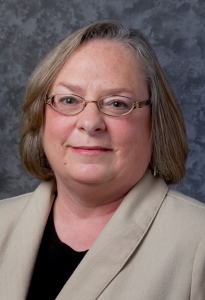
The next two weeks will be extremely busy as we work bills prior to what is referred to as “Drop Dead Day” on April 3. No bills will be considered after this date except bills vetoed by the governor, Omnibus Appropriations Act and Omnibus Reconciliations spending limit bill. Last Wednesday was the last day to consider bills not in House of origin except by “exempt” committees.
I want to thank all of you that have called and emailed me to express your opinion about bills and matters before the Kansas Legislature. Your input is very important and helpful.
It remains an incredible honor to represent our community in the Kansas House of Representatives. If I can be of service to you or anyone you know call my office at 785-296-7371 or email me at pam.curtis@house.ks.gov.
School finance lawsuit (again)
The three-judge panel that ruled in December the state was not adequately meeting their Constitutional obligation to fund public education may soon be ruling on the constitutionality of the governor’s educational block grant program. In a court order handed down just hours after the House passed the block grant bill, the three-judge panel reopened a portion of the case dealing with equity amongst districts. Funding education is one of the most important things our state government does, Kansas courts shouldn’t have to order the legislature to properly fund it; we should do it because it is the thing to do.
Budget
Fiscal responsibility means spending must match income and budgets must be balanced, and traditionally the legislature has always acted accordingly. This year, however, Gov. Brownback and his legislative allies are taking a different approach with the budget. This week the House Appropriations Committee approved a budget that spends almost $600 million more than the state is expected to have in 2016 and 2017.
The governor suggests filling the revenue hole by raising taxes and reducing the state’s investment into public employee’s pensions. Kansans have already suffered greatly because of the governor’s failed experiment, which has forced the state to make deep cuts to services and programs. None of the governor’s revenue proposals offer stable long-term solutions to the Kansas revenue crisis that was brought on by his failed economic experiment.
We must have a budget policy that is fair, equitable, and sustainable, and puts the needs of Kansas’ middle class families first. It would be fiscally irresponsible to consider a budget that is unbalanced, or relies on funding from one-time revenue sources.
Block grants become law
The governor’s school finance plan has now been approved by both chambers. The bill replaces the per-pupil school finance formula with a lump sum to school districts. Last week I voted no on the block grant bill because it:
• Eliminates the school finance formula
• Widens inequalities among school districts across the state
• Cuts funding for USD 500
• Risks litigation in the courts.
The bill will now go to the governor’s desk where he is expected to sign it into law. I urge you to contact the Governor’s Office at 785-368-8500 and ask him to veto the bill.
Repeal of in-state tuition
The House Education Committee heard testimony this week on a bill that would revoke in-state tuition status to about 650 Kansans students because of where they were born. Since 2004 Kansas’ undocumented residents have paid in-state tuition at the state’s public higher education institutions if they:
1. Attended an accredited Kansas high school for three or more years,
2. Graduated or received their GED from a Kansas high school, and
3. File an affidavit stating they are pursing U.S. citizenship.
The bill would force children who graduated from Kansas high schools to pay out of state tuition, a move I fear could price students out of a college education. The House Education Committee did table HB 2139 which hopeful means the end of the legislation for at least this year.
Moving elections to the fall
This week the House Elections Committee voted to approve moving local elections to November to coincide with the general election. The bill, which originated in and was passed by the Senate, may now be heard before the entire House for final approval. Some feel that holding elections in November will politicize local elections.
Medicaid expansion
Hundreds of supporters gathered in the Statehouse this week to advocate for Medicaid expansion as hearings on the measure were held. Expanding Medicaid is essential to providing coverage to an additional 150,000 Kansans who are currently without insurance. Independent estimates conclude that the state has lost over $457 million in federal funds by refusing to expand Medicaid. Kansas healthcare providers are pleading with the legislature to expand Medicaid because it is critical to the future of rural hospitals across the state. Expanding Medicaid to cover uninsured Kansans makes financial sense and is the right thing to do.
